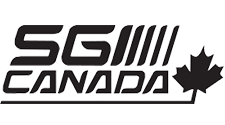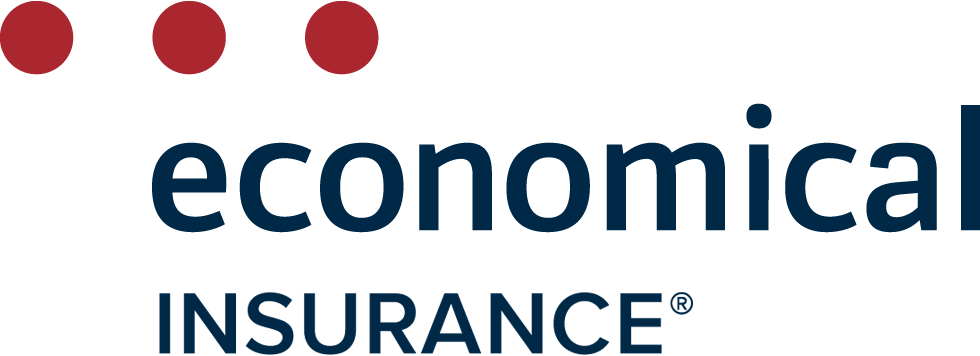
Get Cheap Home Insurance in British Columbia
Compare home insurance quotes from 50+ providers in a single search!
Table of contents:
- How home insurance works in British Columbia
- Why you need home insurance in British Columbia
- What types of home insurance are available in British Columbia?
- How to get the cheapest home insurance quotes in British Columbia
- How home insurance premiums in B.C. are trending
- Tips for finding cheap B.C. home insurance
- Top B.C. home insurance companies
- Risks that B.C. homeowners should know about
- Frequently asked questions about B.C. home insurance
How home insurance works in British Columbia
If you're a driver, you know that if you want to buy a car and hit the road, it's required that you first buy auto insurance. B.C. home insurance, on the other hand, isn't actually mandatory. That said, many banks or mortgage holders may have their own rules when it comes to this. These institutions may require that you show evidence of home insurance before they lend you any funds to purchase new digs.
Why you need home insurance in British Columbia
Regardless of whether B.C. home insurance is mandatory, buying it’s still a good idea. We can’t control the future. If your home was to experience serious damage, you’ll want to be covered. For many Canadians, a home is the biggest investment they’ll make. You don’t want to lose that investment due to unforeseen circumstances that you could have protected yourself against.
In B.C., you’ll want to consider coverage for fire and smoke, bad weather events like wind storms and flooding, crime and vandalism, water damage—such as a burst pipe—and personality liability. The latter is important for accidental damage or injury caused.
Special items you keep in the home, such as jewellery, watches, bicycles, and expensive technology like laptops, can also be eligible for limited coverage.
There are some limitations, however. For example, home insurance doesn’t typically cater to self-employed Canadians who work from home. You may have to buy home-based business insurance coverage for that.
What types of home insurance are available in British Columbia?
In Canada, homeowners can opt for four different types of home insurance. We break them down here:
Comprehensive:
If you want the best coverage possible, choose comprehensive. This is also known as a “special” or “all-perils” policy. In insurance speak, a peril means an event that could result in damage to your home or belongings. So, with a comprehensive policy, you're covered for all types of things that could happen unless your insurer specifically excludes those items in your policy.
Basic coverage/named perils:
Whereas a comprehensive policy will cover all your perils, a basic coverage policy will only cover perils that you specifically identify. For example, if you live in a neighbourhood that experiences a higher degree of theft, you may look to specify theft as one of your chosen perils.
Broad coverage:
You might want to select broad coverage if you're looking for something in-between a comprehensive and basic policy. You'll be covered on big-ticket items, such as if a fire damaged your building, but you'll have to name items inside the home if you want those covered.
No frills coverage:
Insurance companies will offer no-frills coverage if you've bought a property that doesn't meet basic insurance standards. That might mean that are physical problems with your home that insurance companies can bet will have a high chance of leading to issues. You'll want to address these problems to get better coverage.
How to get the cheapest home insurance quote
Get multiple home insurance quotes in the time it takes to get just one
1. Enter Postal Code
Start with your postal code!

2. Enter Your Information
Answer a few quick questions about yourself and your home.

3. Compare Your Quotes
Compare home insurance coverage and quotes from 50+ insurance companies.
How home insurance premiums in B.C. are trending
According to Applied System's Applied Rating Index report, the cost of personal property insurance has gone up 8.7% year over year (Q2 2021 vs Q2 2022).
Among all the provinces, B.C. had the biggest increase in personal property insurance, although the cost of insurance rose in all provinces.
Why was home insurance in B.C. affected the most? Well, there are a few factors at play.
Climate change: B.C. had a few catastrophic natural disasters in 2021 that led to billions in insured damages. According to the Insurance Bureau of Canada, Lytton had wildfire damage of $102 million, White Rock Lake saw $77 million in wildfire damage. B.C. floods caused $515 million in damages.
Rising costs: Pandemic-induced supply chain issues raised the price of materials and labour. This, in turn, drives up insurance costs. Insurance rebuilds after a natural disaster also tend to be more expensive, as the process is expedited so that policyholders can return to their homes.
Paying for temporary housing: Insurance companies paid for temporary shelter for people displaced by natural disasters.
Pandemic renovations: Homeowners invested en masse in upgrades to their homes. Renovations increase the value of your home and your replacement costs, which in turn cause your home insurance premiums to rise.
Unregulated industry: Home insurance pricing is unregulated in Canada, meaning rates can increase at a faster rate than your car insurance premiums. That's why it's always important to compare rates.
Tips for finding cheap B.C. home insurance
Try bundling:
If you also own a car, ask your home insurance company for a quote. Insurance companies may be able to "bundle” your home and auto insurance together for a lower price.
Shop around and for discounts:
Don't be shy in asking your broker or insurance agent how you can reduce costs. You may find you're eligible for discounts and promotions that you hadn't considered. For example, as a college or university alumni, you may qualify for a group discount.
You'll also want to shop the market to get the best deal possible and find cheap BC home insurance. Each insurance company proposes its own rates on home insurance. They'll be different from one shop to the next.
Explore a higher deductible:
Did you know that the higher your deductible, the lower your premium will be? A deductible is an amount you pay before your insurer awards your benefit. It's a way of sharing risk with your insurance provider. For example, if you can claim a loss of $5,000 and the deductible is $1,000, you'll get reimbursed for $4,000.
However, you'll need to assess your own financial risk before jumping to lower your deductible. You don't want to find yourself filing a claim but unable to cover the cost of the deductible. Only make this decision if you believe you can afford it.
Install a home security system:
Studies show that burglars are more inclined to avoid homes that obviously have a home monitoring system and that even if burglars do break in, the amount of property stolen is less than what it would have been without a system.
Since break-ins are expensive for insurers, they want to avoid them when possible. Buying a home security system demonstrates that you're proactive about reducing risk. As a result, it makes sense for them to offer a discount.
Heating system:
If you opt for a newer heating system, you may also be able to gain an additional discount.
Notify when you renovate:
Here is a tip that might sound counterproductive. If you are doing home renovations, let your insurance company know. While they might bump up your premium, it's going to ensure you don't compromise your coverage.
You don't want to make a mistake only to discover that your home insurance policy won't cover you in the event of a loss.
Top B.C. home insurance companies
There is no shortage of insurance companies if you're seeking B.C. home insurance quotes.
We quote some of the best home insurance providers in Canada, including Square One, Travelers, and Gore Mutual.
That said, don't settle on the first insurer you get a quote from. Each insurer offers different rates for the same applicant profile. You'll want to shop around to get the best deal possible.
Below are some of the other insurance companies that can serve B.C. homeowners.
| Company | Company type | Phone number | Address |
|---|---|---|---|
| Aviva Insurance | Agency | 604-669-3212 | 1125 Howe St, Vancouver, BC V6Z 2Y6 |
| BCAA | Agency | 1-888-268-2222 | 4567 Canada Way, Burnaby |
| Square One | Brokerage | 604-684-6574 | Dal Grauer Substation, 989 Nelson St, Vancouver, BC V6Z 2S1 |
| Travelers | Agency | 604-684-6574 | 650 W Georgia St #2500, Vancouver, BC V6B 4N7 |
| Gore Mutual | Agency | 604-682-0998 | Royal Trust Corporation of Canada, 505 Burrard St, Vancouver, BC V7X 1M6 |
| RATESDOTCA | Quotes comparison | 1-844-726-0907 | 360 Adelaide Street West, Suite 100 Toronto ON M5V 1R7 |
| LowestRates.ca | Quotes comparison | 1-855-487-6911 | 1910 Yonge St. Suite 401, Toronto, ON M4S 3B2 |
| InsuranceHotline.com | Quotes comparison | 1-855-821-7312 | 360 Adelaide Street West, Suite 100 Toronto ON M5V 1R7 |
| Scoop Insurance | Brokerage | 416-585-2918 | 300 Lincoln St unit 22, Welland, ON L3B 4N4 |
Risks that B.C. homeowners should know about
B.C. is known for its beautiful natural habitat. Unfortunately, it also faces a lot of risks from natural disasters. In 2021, Lytton, B.C., experienced a devastating fire that wreaked havoc, destroying 90% of the village.
The most common risk factors are earthquakes and forest fires.
Here's how they each impact homeowners:
Earthquakes: Even weak tremors can cause a lot of damage to the home. What's most damaging is that they can strongly impact the structure of a home, which, if not taken care of, can lead to injuries and deaths. Getting earthquake coverage as an add-on is crucial if you live in or near an earthquake zone.
Forest fires: Most policies in B.C. cover unintentional fire damage; however, you'll want to check to see if you have adequate coverage depending on where you reside. Areas like Vancouver Island, Kelowna and Penticton can be particularly prone to fires because of how dense the forests in the area are.
Why use InsuranceHotline.com to compare home insurance quotes online?
There are lots of reasons to compare!
SAVE MONEY
On average, shoppers save $300 on home insurance comparing quotes with us.
SAVE TIME
In just a few minutes you can compare quotes from more than 50 insurers.
IT'S FREE
There's no catch or fine print; our service is absolutely free for you to use.
IT'S EASY AND QUICK
You're just a few quick questions away from your custom quote.
YOUR INFORMATION IS SAFE
Your details are secure. Look for a locked padlock in your browser as well as https.
WE RESPECT YOUR PRIVACY
Your privacy is important to us. We never share your details without your consent.
Frequently asked questions about B.C. home insurance
How can I find the cheapest home insurance quote in B.C.?
If you're looking for cheap B.C. home insurance, look no further than InsuranceHotline.com. Rate comparison sites like outs are designed to help you save money, and they do so by comparing the best deals on the market.
You can also ask an insurance broker or agent how to find the lowest home insurance quote. They might refer you to alumni discounts and home and auto insurance bundles or direct you to home security or heating systems that might help lower costs.
How much is home insurance in B.C.?
The cost of home insurance in B.C. will depend on the insurance company and other factors such as the type of property you own, your credit score, location, the condition of your roof, past claims history, whether you have pets if you have a pool, and other criteria.
To ensure that you get the best discount in the future, always pay your premiums on time and avoid making claims — both will wreak havoc on your premiums. If you think you may need to make a claim, ask your insurer for a claims forgiveness endorsement (an insurance add-on).
Why is home insurance expensive in B.C.?
Home insurance in B.C. is similar to the prices found in Alberta or Ontario — getting more expensive each year. Unlike auto insurance, home insurance isn't regulated provincially. You'll find prices most differ with endorsements or “add-ons" to policies that can protect against specific risks.
In a place like B.C., which can be at higher risk for earthquakes, homeowners may find themselves shelling out a bit more money for that earthquake coverage.
Insurance is also expensive in B.C. because housing prices are high. The more expensive the property, the more it costs to protect.
Do I need to update my B.C. home insurance provider if I run a short-term rental on Airbnb or Vrbo?
Home insurance is based on the residential use of your home. It's not there to cover your home when it comes to commercial use like Airbnb or Vrbo. Even posting a short-term stay ad can violate the terms of your home insurance, regardless of whether a paying customer winds up staying the night.
You can get insurance through Airbnb or Vrbo, but it's not going to cover any damage made to your home by your guests.
Host protection insurance protects your liability if you are sued by a third party who was injured while at your rental.
But if a guest throws a party and trashes your place, filing a claim to get repairs done wouldn't take you far. It'll likely be denied.
If you want to consider starting an Airbnb or similar home-share, ask your insurance company if there is any additional cover that might help you out. If your current insurance company, don't be afraid to look outside and see who else does.
How can I file a home insurance claim in B.C.?
How to file a home insurance claim in B.C. is like filing a home insurance claim in any other province or territory. The rules will depend on your insurance company. They will likely have a phone number you can call or an online form that you can submit to kick off the claims process.
When you need to make a claim, it's always a good idea to do so as soon as possible. Many companies are available 24 hours a day to take claims.











